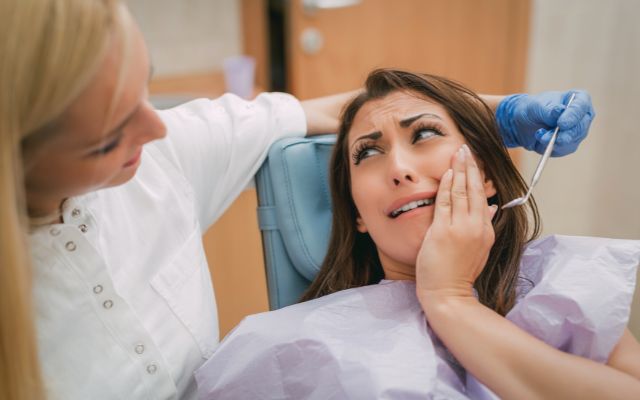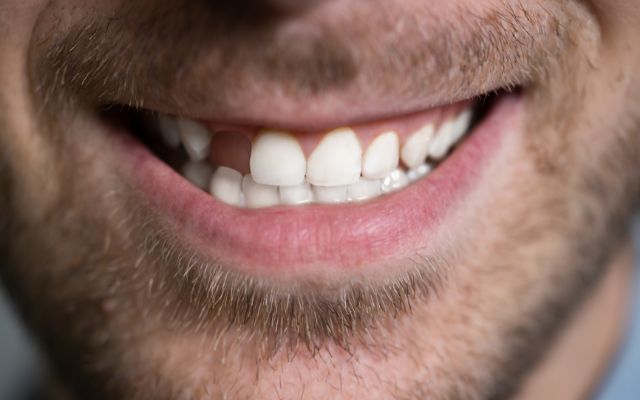Dental Emergencies While Traveling Abroad: is traumatic and frequently uncomfortable. Thankfully, receiving immediate dental care could help you or possibly save your tooth. In this article, I will provide information on how to handle it as well as other useful information.
Let’s get started!
Overview of Dental Emergency While Travelling
Imagine that you are having a great time on your trip until a tooth breaks or a filling falls out. A dental emergency while traveling is traumatic and frequently uncomfortable. Thankfully, receiving immediate dental care could help you or possibly save your tooth.
A dream vacation, dental checkup, potential problems, major work, up-to-date chart, united states, member dentist closest, bon voyage, home country, air pressure, broken tooth, oral health, emergency room
While it’s impossible to entirely prepare for life’s emergencies, it might be helpful to think through what you would do if you or a loved one experienced a dental emergency while traveling. You don’t have to suffer through unanticipated toothaches, shattered teeth, or terrible mouth agony.
You can most likely locate emergency dental treatment everywhere you go. Some discerning visitors investigate the availability of emergency dental treatment and medical facilities at each location. You can be ready to obtain assistance if you prepare your phone with contact information and directions.

Several Indications You May Need Urgent Dental Care
- Several teeth or teeth fall off.
- You lose a crown or restoration.
- Your gums, palate, or mouth are injured due to trauma or impact.
- A tooth becomes loose or dislodged.
- You break or chip a tooth.
- You feel abrupt, strange, severe pain
- Your mouth or gums begin to swell.
- Any other abrupt, tooth-related issues or new gum or mouth pain
The right answer varies based on the nature and severity of the event. In the event of tooth loss, prompt action may decide whether a dentist is able to replace the tooth. Call an emergency dental service for triage counseling if uncertain
How to Handle Frequent Dental Emergencies While Traveling?
We do not wish to frighten you, but if you are aware of typical dental emergencies, you will be able to respond swiftly if you encounter or witness one.
Toothache or Oral Discomfort

A strong toothache may indicate the need for immediate dental care. People frequently downplay the significance of a toothache. A new, inexplicable toothache may be a sign of a more serious issue.
Due to shifts and imbalances in the plane’s air pressure, dental discomfort is a common occurrence for passengers during flight. Typically, this discomfort is not a medical emergency, but it is prudent to be vigilant.
When air enters the area and expands in reaction to changes in air pressure, fissures or cavities within the tooth can exacerbate the discomfort. This condition should be transitory, and you should experience relief upon arrival.
Teeth With Cracks Or Chips
Accidents resulting from sports, skiing, surfing, cycling, or climbing can sometimes result in broken teeth during a trip. Even if you avoid sports, automobile accidents, and other types of trauma, it is still possible to suffer from fractured teeth. A fractured tooth demands immediate attention.
If this occurs, rinse your mouth with water and apply a cold compress to reduce inflammation and swelling. Next, visit a dentist or hospital emergency department.
Lost Or Dislodged Tooth

Tooth loss is a typical dread that can be made considerably worse by travel. If you lose a tooth, you must seek quick care. In some instances, a dentist may be able to restore a missing tooth if you visit them promptly. If a tooth is lost:
- Find your missing tooth so a dentist can replace it.
- The teeth should be rinsed with cool water.
- Try to carefully reinsert the tooth back into its socket without damaging the root area. Do not push the tooth or harm the root’s sensitivity.
- The American Dental Association recommends storing the tooth in a glass of milk, an approved tooth preservation product, or between your gums and cheek if it cannot be easily reinserted.
- Go directly to the emergency dentist.
After 30 minutes, the chances that a dentist can salvage your natural tooth diminish drastically. This is one reason why you should investigate emergency dental care before your vacation.
Some tips for Traveling Prepared
Check-in for a checkup
Have you had cavities or gum disease in the past? Inform your dentist that you will be departing soon on a trip, and check-in for your cleaning. He or she will also provide you with dental treatment and emergency response advice.
Get some dental insurance
The reality is that the majority of insurance policies do not cover you while traveling abroad. You may need to obtain separate temporary dental coverage for travel.
Prepare effectively
Good oral hygiene is crucial for avoiding dental crises; therefore, you should travel with all the necessary supplies. If you have been having discomfort, in addition to visiting your dentist before your flight, you should also bring along some over-the-counter medications, such as ibuprofen and acetaminophen.
Monitor your nutrition closely
Consider your pronunciation abroad. Avoid chewing hard candies and similar items, as they may produce chips or cracks. If you suffer from sensitivity, avoid drinking tea, coffee, and other acidic beverages to avoid the need to visit a dentist abroad.
A dental emergency can be frightening, but when traveling, it can be considerably more so. However, with the right preparation and initiative, you can take care of your teeth before you go and know how to respond in the event of an emergency. Before you travel, schedule an appointment with your dentist and inquire about additional oral health tips that would be useful abroad.
Urgent Care Dentist Near Bassendean, Perth

Are You Planning A Vacation Outside Australia?
Don’t have your vacation ruined by a toothache.
Prior to traveling abroad a thorough dental examination is important especially if traveling to developing countries or remote areas without access to safe dental care.
Emergency dental care abroad may be hard to find, uncomfortable, expensive, or even dangerous.
Most of us take for granted the high Australian standards for infection control and safety.
We seldom think about the fact that sterile instruments, gloves, disposable needles and safe water are not always routine in parts of the world.
Dentists practicing in Australia are held to high standards of care and must follow infection control guidelines for disease prevention.
The standards for educating and licensing dental professionals also vary in foreign countries. In Australia, dentists have been educated in accredited schools and have taken national and state boards prior to receiving a license to practice.
Before You Travel
- Schedule an appointment with your dentist giving adequate time to complete any necessary dental treatment. Pressure changes especially during air travel can cause pain in an untreated tooth.
- Have decayed or cracked teeth treated.
- Congested with sinus problems? It may be from or affecting your teeth.
- Schedule a cleaning, especially if you have any type of periodontal (gum) disease or bad breath.
- Sensitive teeth should be checked before you travel.
- Complete all root canal treatments.
Don’t let a dental emergency dampen your vacation. Be sure to have your teeth in great shape prior to leaving home.
FAQs
What if you have a dental emergency while traveling abroad?
You may also contact the embassy of your own country, speak with the concierge of your hotel, or consult the International Association for Medical Assistance to Travelers for assistance in locating the closest dentist who can treat your emergency.
Does travel insurance cover dental emergencies?
Your insurer will only cover dental bills for emergency pain alleviation. This means that the therapy will be confined to the relief of sudden and acute discomfort and will not include general checkups, new fillings, or extensive dental work.
What to do if you have a toothache while on vacation?
For dental emergencies during the holidays or at other times when a dentist is unavailable, consult your medical cabinet. Most people have access to acetaminophen or ibuprofen at home, as well as an ice pack and saltwater. Consider including a few additional items in the home first aid kit.
Conclusion
When traveling, it is crucial to always be as well-prepared as possible for any event that may arise. It can be difficult to deal with a toothache when traveling, which is why you should have a thorough grasp of dental emergencies. This will allow you to address any issues that may arise.





